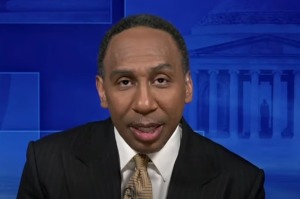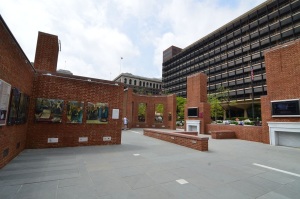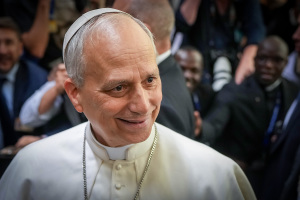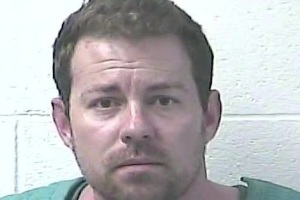Buffalo pastor says white peers who won’t stand against white supremacy can ‘go to Hell’
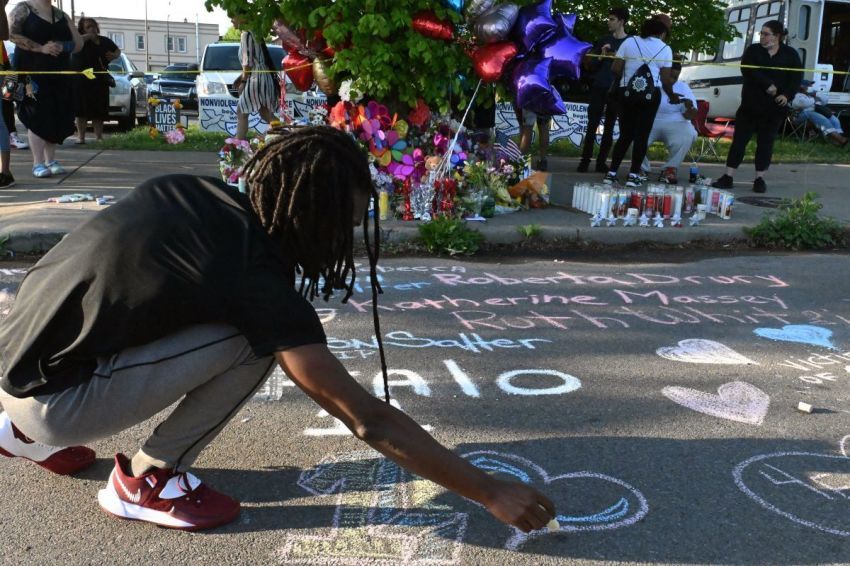
A prominent black pastor in Buffalo, New York, said his white peers who refuse to stand against white supremacy in their pulpits could “go to hell” with the alleged mass murderer accused of executing 10 mostly black people in the name of white supremacy as they shopped at Tops Friendly Markets on Saturday.
It was a visibly difficult Sunday morning for members of True Bethel Baptist Church and their leader, Bishop Darius G. Pridgen, as they tried to come to terms with the massacre unleashed on the innocent shoppers by the 18-year-old shooter, Payton S. Gendron.
Three others were also wounded in the attack, described in a statement by U.S. Attorney General Merrick B. Garland as “an act of racially-motivated violent extremism.”
"I want to say this publicly, especially to my white pastors, don't tell me you're a friend of our community and you don’t address this today in your pulpit," said Pridgen, the president of the Buffalo Common Council, from his pulpit during the 8:30 a.m. service broadcast live to thousands on YouTube on Sunday.
"Don’t tell me you love all people, and you don't stand up against racism, and you don't stand up against hatred, and you don't stand up against white supremacy,” he said as many Buffalo churches grieved their neighbors in other services. “You do your church over there, but as for us, we are grieving."
“And if you don’t stand behind that holy desk and acknowledge that there are still people who hate black people, you can go to Hell with the shooter for all I care because, at the end of the day, if you're silent right now, you're not a friend of mine,” the bishop continued. “Don’t invite me to your repast. Don’t invite me to have words in your Black History Month."
Pridgen said now is the time for everyone to stand against hatred.
"This is the time for black and white people, for Jew and gentile, for Muslim, to stand up together and say no to hatred," he said.
In the audience at the True Bethel Baptist Church service mourning the victims on Sunday were New York Gov. Kathy Hochul, New York Attorney General Letitia James, Buffalo Mayor Byron Brown, U.S. Rep. Brian Higgins, state Sen. Tim Kennedy and Erie County Legislature Chairwoman April Baskin.
Just over a year ago, a report from LifeWay Research found that despite massive protests in 2020 against police brutality and racial injustice following the death of George Floyd, fewer pastors, particularly white congregation leaders, said they are willing to preach sermons on race compared to 2020.
The study showed that only 74% of pastors agree that their congregation would welcome a sermon on racial reconciliation. And of that number, only 32% strongly agreed. In 2016, some 90% of pastors said their church would welcome a sermon on racial reconciliation, with 57% strongly agreeing.
While the concept of racial reconciliation is expressed in different ways in specific communities in the U.S., the website Racial Equity Tools contends the process includes public acknowledgment of racist events and crimes such as apartheid or violence against groups of color.
The website also states that racial reconciliation "may also examine and make public the current impact of such events, as well as their historical occurrence." Individual victims can also be allowed to "tell their stories for the record as one part of a healing process," while "individual perpetrators might also acknowledge their complicity. Formal and serious apologies are also often part of this work where victims can choose to accept or reject that apology."
The list of victims of Saturday’s massacre released by the Buffalo Police Department shows that all but two of the dead were New York State residents. The majority also lived in Buffalo and were older adults, likely not fast enough to escape during the attack.
Among the dead Buffalo residents are Roberta A. Drury, 32; Margus D. Morrison, 52; Geraldine Talley, 62; Celestine Chaney, 65; Heyward Patterson, 67; Katherine Massey; 72; Pearl Young, 77, and Ruth Whitfield, 86. Others killed are Andre Mackneil, 53, of Auburn, New York; and Aaron Salter, 55, of Lockport, New York.
Victims who survived non-life-threatening injuries during the attack include Zaire Goodman, 20, of Buffalo; Jennifer Warrington, 50, of Tonawanda; and Christopher Braden, 55, of Lackawanna.
A release from the Erie County District Attorney’s Office alleges that Gendron, who was charged with first-degree murder on Saturday, drove hours away from his home in Conklin, New York, to the market dressed in tactical gear and armed with an assault weapon. At approximately 2:30 p.m. he shot four people in the parking lot of the grocery store, and three of them died from their injuries.
He then entered the store and exchanged gunfire with an armed security guard and retired Buffalo Police Department officer, Aaron Salter, who died. Gendron then allegedly shot eight more people inside the store, killing six of them.
During the address to his congregation, Bishop Pridgen said he planned to preach about the story of Cain and Abel on Sunday, but the massacre interrupted everything.
He said he first learned of the shooting from his teenage son and described the chaos he saw at the scene when he arrived. He said one of his members, identified as Charles, called him from the hospital and told him that his grandson got shot.
“And Charles is here today singing. Celebrate our member,” Pridgen said.
“The bullet went into his body and straight out without hitting an organ,” he continued to cheers from the congregants.
Shortly after sharing that testimony, a voice was heard screaming, “put down your gun!” which prompted a brief moment of panic in the church. The pastor, his security and members quickly removed the man who screamed.
As the investigation into the attack continues, Shonnell Harris Teague, an Operations Manager at Tops, told ABC 7 that she saw Gendron sitting on a bench outside the store on Friday at about 1:30 p.m., and he was there for hours. He was also wearing the same camouflage outfit he wore during the attack with a camper bag on his back.
"He had the same clothes on, but he had camper gear on his back like he was asking people for change," Teague said.
Teague said Gendron later entered the store and appeared to be bothering customers. She asked him to leave, and he complied.
The next time she saw him was during the attack on Saturday.
"I see him with his gear on and his gun and how it was all strapped on. And he shot a man that was already, I don't know if the man was moving. He must have shot him again,” she recalled. "I seen all the other bodies on the ground ... it was just a nightmare."















